A few days ago an excellent investigative report by Mitch Potter of the Toronto Star was published informing the citizens of Canada that their signature project in Afghanistan, the Dahla Dam irrigation project, appears to be failing. It is a story well told and yet another example of the insanity of doing the same thing over and over while expecting different results. Both the Big Army and the “Big Aid Agencies insist on working large projects as if they have all the time in the world to design and implement the perfect plan. Having spent years developing the perfect plan, the Canadian International Development Agency (CIDA) and their implementing partner find themselves locked down inside their compounds unable to accomplish anything. Developing a perfect plan is meaningless if you can’t implement it. At exactly the same time and in exactly the same place (plus lots of other worse places) outside the wire legends, Tim of Panjwayi, Mullah John and their motley crew of internationals from CADG have implemented US AID projects which have constructed over 1000 kilometers of irrigation canal in the southern, eastern, and western regions of the country.
In the face of high risk and uncertainty; small agile mission focused organizations will function where large bureaucratic organizations fail. How much longer will it take before somebody at the top of our government figures this out? We are swamped with hundreds of FOB bond bureaucrats who have all the good intentions in the world and can explain in excruciating detail exactly why they can’t translate their good intentions and piles of OPM (other peoples money) into effective projects. Good losers lose and I am sick and tired of being on the side that is losing due to self imposed constraints.
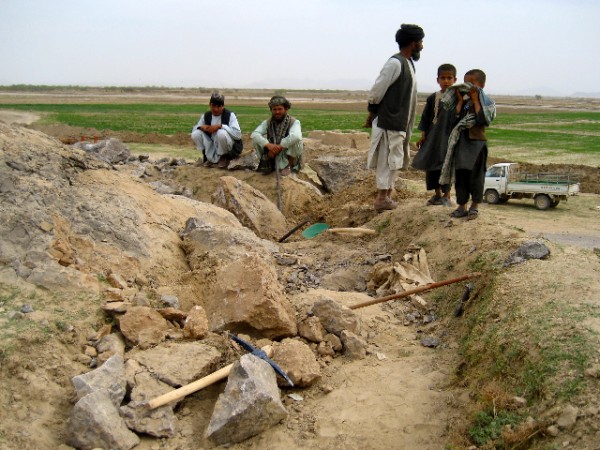
There are two components to this story which bear scrutiny – the first is the security company hired by the Canadians to protect their project and workers. Check out these paragraphs from the linked article:
“Foremost among the setbacks, insiders say, was a dramatic confrontation on Feb. 20, when rising tensions between Canadian security officials hired to oversee the project and members of Watan Risk Management, a group of Afghan mercenaries with close ties to the Karzai family, culminated in a Mexican standoff — the guns hired to protect the project actually turned on each other in a hair-trigger confrontation.”
…”Ever since, the project has been basically held hostage by the Karzai mafia, who are using security concerns’ to stall the work. They are able to put fear in the heart of the Canadian contractors, telling them There is evil outside the gates that will eat you.’ The longer they delay, the more money the Afghan security teams make. The Canadians have good intentions but that is the reality.
This is what you get when government officials focus on bureaucratic procedure at the expense of mission accomplishment. This is what happens when governmental funding agencies insist on taking the lowest bidder for all contracts. This is the price for elevating the mission to support GoIRA (Government of the Islamic Republic of Afghanistan) above all other missions despite knowing that often GoIRA is a bigger problem for local people then the Taliban. CIDA could be directly hiring former Canadian soldiers who have served in the Arghandab Valley, paying them a thousand bucks a day, arming them to the teeth and letting them work with the locals, functioning as both implementation managers and security. Why do you think Tim of Panjwayi and Mullah John (both former Canadian infantrymen) are so effective at what they do? Security is their number one collateral duty, implementing projects is their mission. They don’t hire security firms because no other expats in the country have a better handle on their security needs than they do.
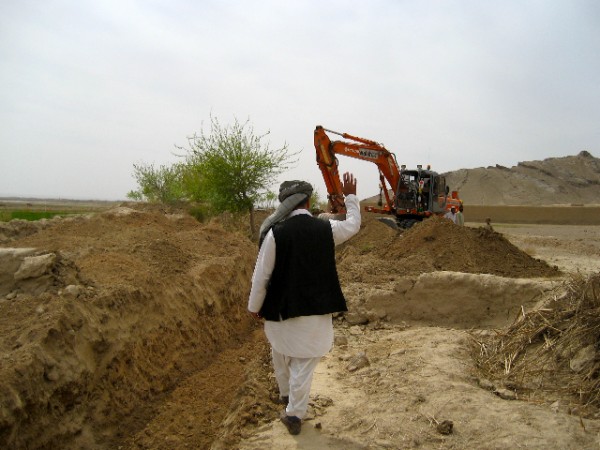
Here is a tip you will never hear from an international security company: When working in an area with an active insurgency, smart guys arm their compound guards with double barrel shotguns. The expats inside the compound carry a sidearm at all times, have a battle rifle and crash bag in their room. Staging modern battle rifles which can be used against you inside the compound walls is stupid. The interior guard force mission is to detect intruders, discharge both barrels and fall back behind the expats before the dogs are turned lose. Gunfighting is serious business best left to professionals who have the proper background, training and experience. Guess what? Local Afghan guards like that plan, they don’t mind falling behind guys who have the training and temperament for close quarter battle. Here is another tip, if the local people cannot organize security to protect reconstruction projects which directly aid them, then you move into districts that can. Pashtunwali works both ways; if internationals are invited in to do aid projects, then there are obligations incurred by both parties when it comes to security.
There are no Private Security Companies (PSC’s) in Afghanistan, with the exception of those on high priced (and FOB bound) U.S. Government contracts, who conduct anything remotely resembling proper training. They can’t afford to compete with Afghan firms who have driven prices so low that it is impossible to incorporate a proper training regime into a competitive bid. PSC’s have had their share of problems, mostly in Iraq but a few here too. However the business model used by firms like Triple Canopy or Blackwater are sound and capable of rapidly fielding highly trained teams who can conduct independent operations. They can conduct high end training on modern ranges, process clearances and issue combined access credentials for hundreds of guys per cycle. The only viable way to employ that capability is through special DoD contracts which protects the contractor from operational and administrative interference by the authorities in Kabul, while also placing the responsibility for employment and supervision directly on the battle-space owner.
America and Canada are pouring millions and millions of dollars into this country in an attempt to ease the burdens of a poor, uneducated, abused population. They should be dictating the circumstances of the security plan for their aid projects. The Americans have a treaty dating back to 1954 which allows them to bring in all the support and equipment they need without going through customs. The Canadians and other sponsoring nations should have one in place too. That is called “diplomacy” which is something we were once pretty good at.
All the politics, problems, and misconduct associated with the private security companies are the chickens coming home to roost. The international community represented through the good offices of the UN wanted the PSC’s regulated insisting the industry was full of irresponsible gun goons. The UN aided the Kabul government in designing PSC regulation with the active cooperation of the international PSC companies who operate in Afghanistan. Hundreds of man hours were spent crafting a law, which would require minimal levels of training, certification, and accountability, and the end it all went out the window. The laws currently in place are designed to extract ever increasing fees from the companies headquartered in Kabul and do little else. The laws are ignored by the ANP and NDS around Kabul who periodically throw up roadblocks and confiscate armored vehicles, weapons and radios from licensed expats. They even confiscated an armored SUV from the American army last February – it was stripped by the time the Americans went to the NDS lot to recover it. Laws which are not consistently and fairly applied are not legitimate tools of public policy; they are the tools of tyranny. And that tyranny has bit CIDA right in the ass on their largest, most ambitious reconstruction project.
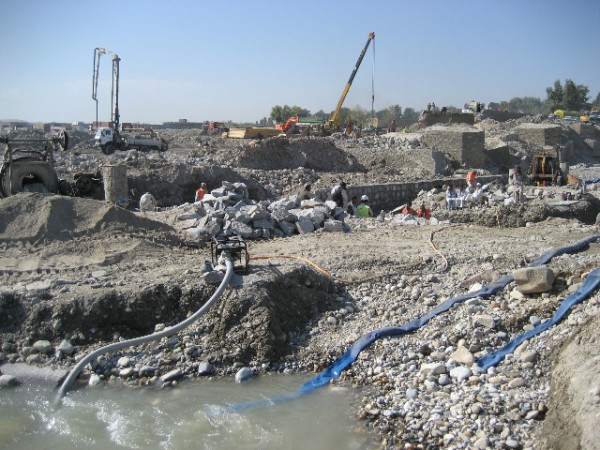
Here is the other part of the story which reflects a lack of focus on the mission while optimizing the planning cycle:
“Vandehei makes no apologies for the agonizing two-year buildup to January’s groundbreaking, saying the complexity of the system and the fact that it directly affected the lives of more than one million Kandaharis required that Canada measure twice and cut once to get it right.”
Nonsense. When problem solving you can optimize or “satisfice” solutions. Optimization takes lots of time and lots of detailed planning; “satisficing” emphasizes speed and action to get solutions in place while meeting a less than optimal “good enough” technical solution criteria. Vandehei went on to give her completion stats to date:
“Work to date amounts to this: CIDA estimates it has removed the first 90,000 cubic metres of estimated 500,0000 cubic metres of silt blockages. Additionally, the first eight sub-canals — there are 54 in all, some as much as 10 kms long — have been dug out.”
If the mission is to get people working while repairing miles and miles of irrigation canal then they should have started two years ago. Digging canals and building intakes takes little technical expertise but lots of manpower. Let me paste in a quote from Mullah John on the topic:
“Two years for engineering studies! It’s a dirt dam with a gate! We’ve dug 500 km of canals in Nimroz by hand since December after 2 weeks of study. CIDA was supposed to hire 10,000 CFW workers for other jobs in the area. After year one they had hired 129.”
I asked Tim of Panjwayi, who has small teams of expats working every dangerous Province from Kunar to Nimroz, what his stats look like. Here they are for last quarter; 77 projects in 14 Provinces employing 1,703,829 man-days of labor which paid out $7,860,939 directly into the hands of the poorest of the poor. That’s how you do cash for work, and regardless of how one feels about the effectiveness of using cash for work as counterinsurgency tool, Tim and his boys are accomplishing their assigned mission by satisfing the technical requirements. Their mission is getting more and more dangerous by the day. They have not lost any expats, but they have taken some casualties to their work force.
Clearly the current methods of operation in use by donor governments are not producing acceptable results. It is time to start trying radically different approaches to both the military and reconstruction aspects of the campaign. It is time to reduce the number of people here, but increase the mobility and ability of those who choose to take on the reconstruction battle to get the job done. That means hiring high end, experienced operatives and allowing them to function as implementation managers while being armed and part of the project security detail. Even better would be to marry these teams up with small detachments of infantry of Special Forces types, enabling them to get in, do the work we said we would do, and then get out leaving behind a credible local security force and a functional district government – Inshallah.
If the money is right we could flood the country with teams of contractors who have years of experience operating in austere hostile environments. It is not a perfect solution, but it is one which is working right now while the large bureaucratic efforts flounder. We need to recognize and reinforce success – good intentions mean nothing anymore in this country.
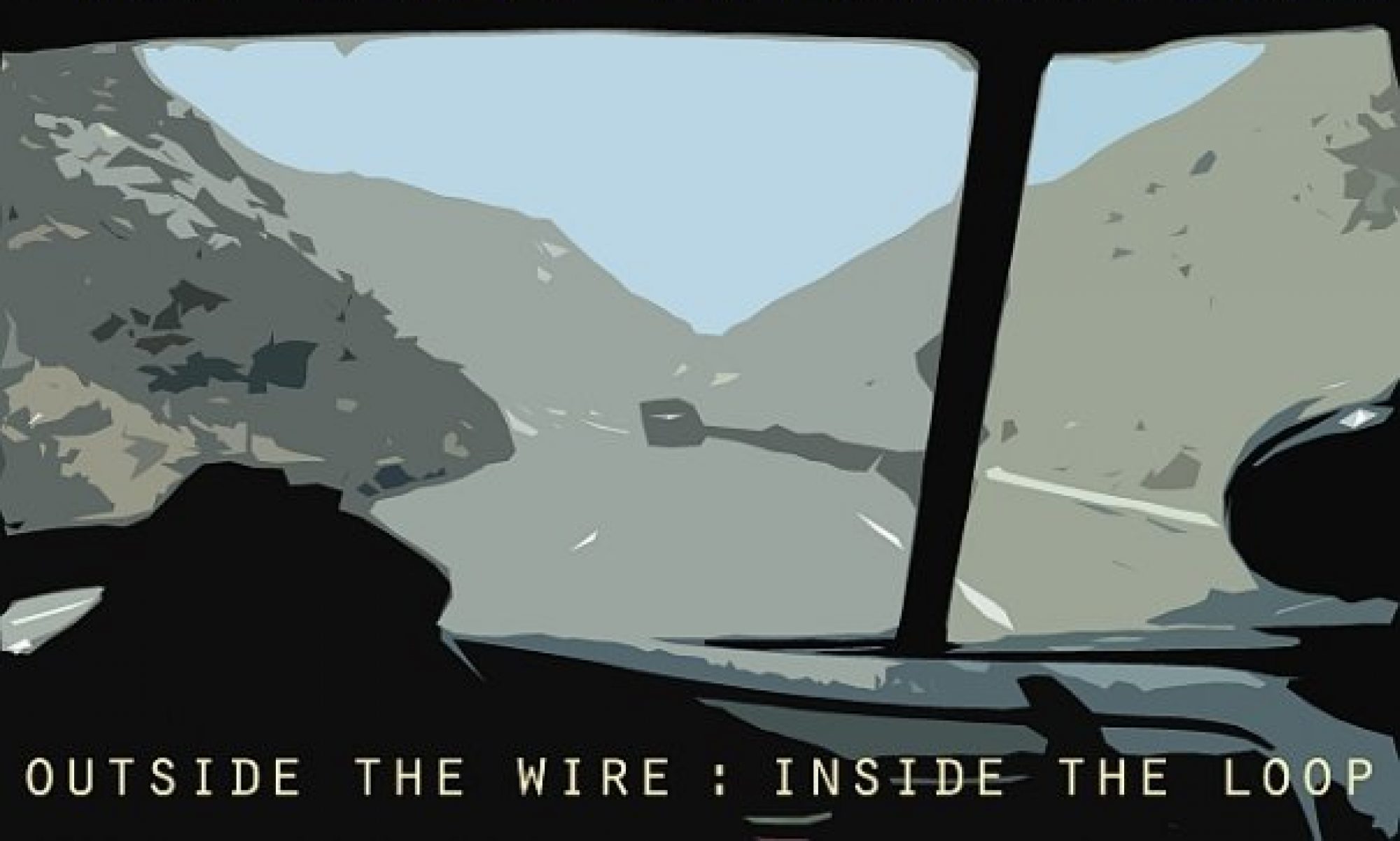
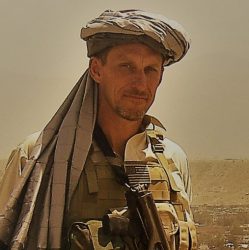

Interesting post. You know Tim, you guys have developed a method of operating out there, that is more efficient and more effective than government programs. It works, it is COIN friendly, and it pisses off the Taliabn. If today’s war planners were smart, they would recognize the potential and look at ways of copying it and researching its scalability.
So the question is Tim, can you teach what you are doing? Because if you can, there are a whole legion of security contractors who would be interested in doing exactly what you are doing.
Who is going to pay this legion of security contractors who would be interested in doing exactly what Tim is doing?
The pool of potential clients with the guts to operate like Tim advocates is a small one.
If the powerful people profiting from the way things are now were convinced that Tim’s way was more profitable for them, things would change.
Actually, there are plenty of contractors with the guts to do these types of operations.
That is odd that you would say such a thing. Most of the guys in this industry are veterans of Iraq and Afghanistan combat operations, with multiple tours and as infantrymen. There are also many contractors over the history of this war, who have done plenty of low profile transportation gigs, and in some very dangerous places.
Hell, if Tim put up a recruitment today, he would be bombarded by resumes from all over the world. I am sure he gets plenty as is. The point is, there is no shortage of guys would gladly do this work.
But there IS a shortage of clients who will pay them to gladly do this work. Makes no difference how many gutsy contractors there are if there is no market for their gutsiness.
Hey guys – this is a good place to jump in and explain a few things. The first is that posting as of late has become my way of trying to work things out as the security situation continues to destabilize rapidly. In Jalalabad we have already made significant adjustments to our travel SOP’s which limits our freedom of movement a bit but is not too bad. The boys in the south (Tim of P and Mullah John) have it much worse but continue to accomplish the mission. There is little doubt that there is going to be a military draw down in Afghanistan starting about a year from now. The military has got to come up with a plan which allows it to accomplish the mission of bringing security to the people while working with reduced numbers of both soldiers and things.
In my opinion the way to fill the gap is with contractors. But it can’t be done like it was in Iraq, the contractors – who I think should function as part of civ/mil district stabilization teams, have got to be under the complete control of the battle-space owner. The military (I would bet) wants no part of that kind of an arrangement but if you slip contractors under the G9 and give him a Program manager the commander personally approves to run the contractor part then the guy at the top of the program has the added incentive of maintaining his professional reputation among his peers who are also the customer.
I sited the CADG crew as an example of doing exactly what I am proposing on the ground right now. I then went on to mention Blackwater and Triple Canopy as the ideal source for these teams. I know guys from both firms and have always been very impressed by the Triple C guys. I know plenty of Blackwater guys too and I would happily work with any of them. The fact is that to turn out enough guys to man the 63 districts deemed by ISAF to be the most critical in the country requires a company with the training and administrative capacity to do the job correctly. There are not many of those. A few of these companies have had reliability problems and Blackwater appears to be unable to recover from the negative reputation it earned in Iraq. But the concept of using armed contractors to help bring stability and projects to unstable district centers while augmenting the military detachment is sound.
Sound concepts are one thing, legal under existing contract law and political feasibility another. I know that what I am proposing is practical because that is how my friends and I operate now. What I don’t know is how hard it would be to scale up or to place the contractor directly under the supported commander. If you do it right it would be painless – just like having an additional unit of specialized troops attached with their own senior staff officer working in the G9 shop. But that would take a radical change in institutional thinking and I believe that change will not happen until the military admits it is losing ground and losing it fast.
Now that I will agree with. I imagine there is a little bit of a clash between private industry and government here. Of course Bob on the FOB, who works for DoS and is limited by twenty billion different rules on how to operate outside of the wire, is probably a little miffed that guys like Tim and his crew are able to accomplish more and with less. They are also probably jealous of Tim’s freedom of movement, and his ability to decide the best way for accomplishing the mission. That is the power of private industry, and that is what makes government so unappealing.
But hey, you sure do get some great benefits and a consistent salary as a government employee. Plus it takes an act of god to get fired as a gov guy, and especially if you know all of the little loopholes.
On another note, yesterday I made a conscious decision not to use the Post Office and instead use the Postal Annex for delivering a package. lol I guess I am biased towards private industry, and Marge at the counter appreciated my business.
Tim thank you for your insights on this story. Am a big backer for “work for pay” programs,all tho its short term that is.Well done Tim. As for CIDA its maybe in there best interest to pull the plug,an money and leave.Let WRM guard the pit, “karzai” can pay for it.Lets face it karzai has full control of what happens there. He dictates how we fight,how we “will” do thing,and who can work.If ANP,ANA,NDS(KARZAI.inc)Take what they want at anytime, then whats next?are MRAPs.Some aid group have been told to leave the country NOW.The Taliban is a threat but karzai will be the downfall of Afghanistan.
My pal Abdul says smart money goes to the “Karzai Mafia” and the opium/hash markets. Consider these groups the “shadow government” of Afghanistan.
The land of walls exists for a variety of reasons. “Stupid is as stupid does” so says Forest Gump…buy the way, the Bubba Shrimp boat is for sale…cheap too!
But is it not fact Karzai is not wanting anymore PSC foreign contractors in his country. so the legion will be afghan born. But hay this would be great,if you can git a work permit and visa.
PS.hell yes! I would work for tim,even if it was to mow the grass. 🙂
From the Telegraph UK, on the hanging of a 7 year old boy:
“If I have a legal problem, the Taliban will rule in an hour according to our customs and Islam. If I take it to the government, in six months nothing will have happened. Then whoever pays the most will win.”
If the “uneducated” natives sense this as reality within their immediate world, then all the great contractors and those who protect them that come to build dams, bridges, roads, etc. won’t mean much of anything.
Don Corleone would understand this first principle easily. Harvard, Yale and Princeton graduates may have a much more difficult time, however.
Exactly. That’s why we need “Andy Griffith” over here and not “Robocop” from the Government side. And that’s why a private organization more akin to an outlaw bike gang is most effective in counter-insurgency work.
Mullah…you made my day with your “Robocop” metaphor! MRAPS to the front and center…
Babatim; Great article. You sound like me. I hate you already, LOL.
Hmm interesting I see the NYTs reporting vast mineral deposits in Afghanistan. Let the contract roll.
Tim Said:
Sound concepts are one thing, legal under existing contract law and political feasibility another. I know that what I am proposing is practical because that is how my friends and I operate now. What I don’t know is how hard it would be to scale up or to place the contractor directly under the supported commander. If you do it right it would be painless just like having an additional unit of specialized troops attached with their own senior staff officer working in the G9 shop. But that would take a radical change in institutional thinking and I believe that change will not happen until the military admits it is losing ground and losing it fast.
—————
Outstanding. I vote Tim as the program manager to work with this G9 shop, if such a program materialized.
pouring “millions and millions of dollars” is about the grossest understatement that I have ever heard about Afghan reconstruction.
that being said at least you seem to have some understanding of both pukyanwali and also the low esteem that many mullahs are held by by Afghanis
Maybe it’s time for a new Afghan tea party, though hopefully not quite so idiotic as our own.
The “Provincial Party”. Platform: it’s your village, your aid money, your security, your schools, and your decisions. To hell with the TB and Kabul.
Course you would have to figure out a way to have real elections again.
And a big project like this one involves a lot of villages.
The amount of waste and graft in these projects, wherever they are, is just mind-boggling.
You could put half the country on the dole for what a few thousand glean every year.